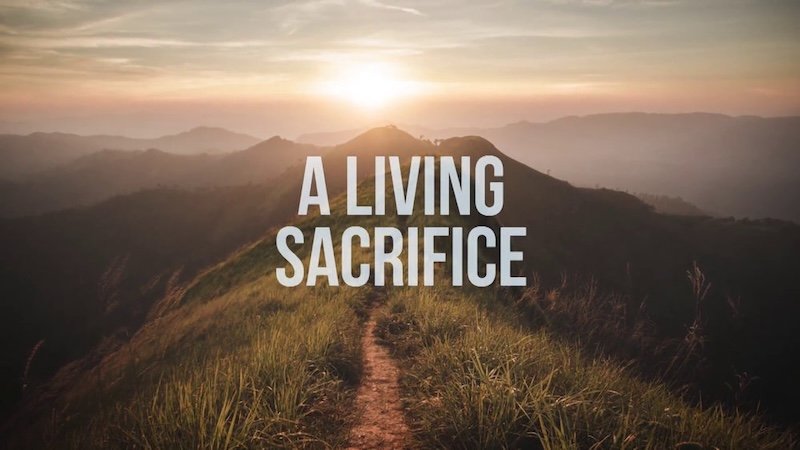
Jesus once told this parable:
Then the Kingdom of Heaven will be like ten bridesmaids who took their lamps and went to meet the bridegroom. Five of them were foolish, and five were wise. The five who were foolish didn’t take enough olive oil for their lamps, but the other five were wise enough to take along extra oil.
When the bridegroom was delayed, they all became drowsy and fell asleep.
At midnight they were roused by the shout, ‘Look, the bridegroom is coming! Come out and meet him!’
All the bridesmaids got up and prepared their lamps. Then the five foolish ones asked the others, ‘Please give us some of your oil because our lamps are going out.’
But the others replied, ‘We don’t have enough for all of us. Go to a shop and buy some for yourselves.’
But while they were gone to buy oil, the bridegroom came. Then those who were ready went in with him to the marriage feast, and the door was locked. Later, when the other five bridesmaids returned, they stood outside, calling, ‘Lord! Lord! Open the door for us!’
But he called back, ‘Believe me, I don’t know you!’
"So you, too, must keep watch! For you do not know the day or hour of my return."
(Matthew 25:1–13, NLT)
I’ve often heard this parable taught in church as a lesson in being prepared to wait for Jesus’ return, and not becoming complacent in the waiting.
But is that really what this is about?
All of the women fell asleep.
There was no difference in their level of activity. Only in their preparedness.
One set literally burned themselves out and didn’t leave anything to replenish themselves with. The other set also fell asleep, but when their lamps ran low, they had brought extra supply.
Which brings me to a new conclusion:
This parable could just as easily be about not burning ourselves out as it is about waiting.
People in ministry love Jesus. They often dedicate their lives, their hobbies, their energy and resources to sharing the good news about Him with others, serving people in the name of Jesus, and advocating for the weak and helpless.
This work can be all-consuming. We do it “for the sake of the Gospel.”
But is that what God really asks of us?
I’ve written before about how giving up more than God asks of us can be just as bad as giving up less than He asks. When we do more than what He asks, we risk a different type of disobedience. After all, if a farmer asks me to plow a certain field, and I plow both that field and the one beside it too, am I being helpful—or did I just destroy a crop that wasn't ready to be harvested?
Missionaries and pastors seem particularly susceptible to the lie that working ourselves to exhaustion is somehow a demonstration of godliness. It may be a demonstration of dedication of our work, but not of our dedication to God.
So what does this parable tell us about the right way to approach our work?
1. We need to be prepared for Christ to take longer
He is not—and never was—going to come according to our schedule. He is our leader. We are not His.
If God has called us to ministry, it may be for a lifetime, or it may be for a season. If it’s for a season, He will redeploy us somewhere else when we’re done. In either case, we cannot afford to pour an entire lifetime of energy into only a few years before we burn ourselves out.
Once we burn out, there’s no guarantee we will ever come back. Some people’s personalities and mental health are changed forever.
2. The things we do may look similar to what others do
The work of a Christian advocate for the poor might look very similar to that of the work of someone who’s not a Christian, but the nuances will be different. The motivations will be different. The spiritually-holistic approach will be different.
If we anchor our sense of accomplishment and wellbeing in Jesus rather than the results of our work, our mental and spiritual health will also be different. Jesus can give us the stamina to keep going, to live an entire lifetime of faithfulness. It’s that longevity that often stands out more than anything else to the people who observe and come after us.
Our testimony doesn’t just consist of what we do. It consists of our faithfulness in doing it. Not just for a few years, but for a lifetime.
3. We need to leave ourselves enough resources to last, so we can keep burning
Our lives and ministries should consume those resources at a sustainable rate. In other words, we shouldn’t be constantly edging towards burnout, even if we don’t quite get there. We should always be engaging in self-care practices and rest that replenish our resources.
This “leave enough resources” principle isn’t just intended for the person in ministry, but for their family as well. If we don’t leave ourselves enough to take care of our spouses and families, then, as Paul says, “Anyone who does not provide for their relatives, and especially for their own household, has denied the faith and is worse than an unbeliever.” [1]
This may mean that as we age, our activities diminish somewhat, apace with diminishing energy.
It also means that we make rest a part of our rhythms of ministry. Depleted, we may be able to put on a good show for a while—perhaps falling back on old journals and moments of learning during times when we were less worn—but eventually our depletion will show itself in our ministries. This could be in the form of ever-decreasing nourishment in the things we teach. It could also be in the form of a fall into sin.
Depleted people are more likely to stumble and fall.
Rest is not just required for our own refreshment. It's required to sustain godliness.
If our rest is insufficient, we won’t have the energy to pursue God—really pursue Him in devotions. Sitting in silence takes focus and energy. Meditation takes energy and creativity (another thing that turns off in fatigue). Intensive prayer takes LOADS of energy.
Is it any wonder, then, that taking a Sabbath rest is one of the Ten Commandments?
That commandment is a fundamental undergirding, a support for our obedience in every other dimension.
In contrast, how many people have become shells of their former selves, have lost their faith or caused their families to lose their faith because of their obsession with serving with no thought to wisely stewarding their time, efforts, and energy so they’ll be sustainable through the long haul?
I now think that Jesus’ admonition at the end of the parable—“keep watch” (“be on the alert”, the NASB says)—is actually an admonition to take care of our own resources, so we can keep burning—no matter when He comes. “For you do not know the day or hour.” [2]
Lord God, I confess today that I have glorified overwork. I’ve been okay with pouring everything into ministry and ignoring my own needs and the needs of my family. I want to be someone who honours You with my whole life—not just for a few years. Please show me how to be like one of the wise young women who didn’t just expect you to come according to her timing. Please enable me to be faithful to the calling You’ve placed on my heart and life—but also not to make that calling an idol. It’s not more important than my relationship with You. You are my everything. Please show me how to be steadfast, immoveable, always abounding in the work of the Lord [3] but also recognize that all that toil will be in vain if I don’t keep close to You. I entrust my ministry, my effectiveness, and my self to You, Lord Jesus. Amen.
NOTES
[1] 1 Timothy 5:8, NIV.
[2] Matthew 25:13, NLT.
[3] See 1 Corinthians 15:58.










